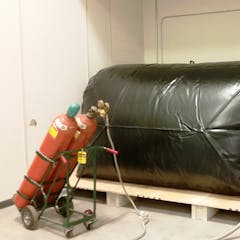
Articles on Research
Displaying 1 - 20 of 772 articles

Having asymptomatic flat feet is not a problem and does not require treatment. It’s important to debunk this common myth.

Substantial economic growth in the psychedelic drugs market has drawn interest from corporations and start-ups. While this may accelerate research, it also sparks concerns about conflicts of interest.

The ideological war waged by Smith will only endanger high-quality research void of political interference from the government.

In the latest higher education funding freeze: sacrificing the arts for STEM subjects makes no sense.

Sugar-free chewing gum has been promoted for its oral health benefits for years.

Calcite, the material making up fossilized eggshells, may preserve amino acids better than bone.

Community-engaged research was disrupted by COVID-19 restrictions, meaning researchers faced serious challenges when their results were most needed: during a public health crisis.

An evolutionary biologist is studying what these resilient urban pests can teach us about adaptation and evolution.

As a partner on the International Public Policy Observatory, The Conversation is making an impact.

Pressure to ‘publish or perish’ and get results out as quickly as possible has led to weak study designs and shortened peer-review processes.

Politics and the lack of compensation are among the factors that can undermine the peer review process, which is important to the quality of knowledge in academic journals.

American men see manhood in opposition to womanhood. Danes, on the other hand, see manhood as not acting immaturely, as a boy would.

Australia’s allies are serious about the risk of research espionage - and one way or another, we need to catch up.

The findings push back against the notion that many transgender people end up wishing they hadn’t gone through with gender-affirming surgeries.

With the fourth significant shortage of helium in a decade continuing, companies and researchers are looking for alternative sources.

The new Netflix documentary follows identical twins as they adopt different diets. This is a great example of a twin study – a uniquely useful research tool in science.

Though they’re sometimes characterized as attention-addled homebodies, younger people see a real value in libraries − one that goes beyond books.

Researchers have made a fascinating observation: a polar bear used a diving hunting technique, never before reported, to capture large moulting snow geese.

Montréal is home to one of the world’s largest brain banks, the Douglas-Bell Canada Brain Bank, where discoveries about different neurological and psychiatric diseases are made.

If scientists cannot freely conduct and communicate their work, the gap between evidence and policy widens, and that means Canada gets less effective laws and policies.
